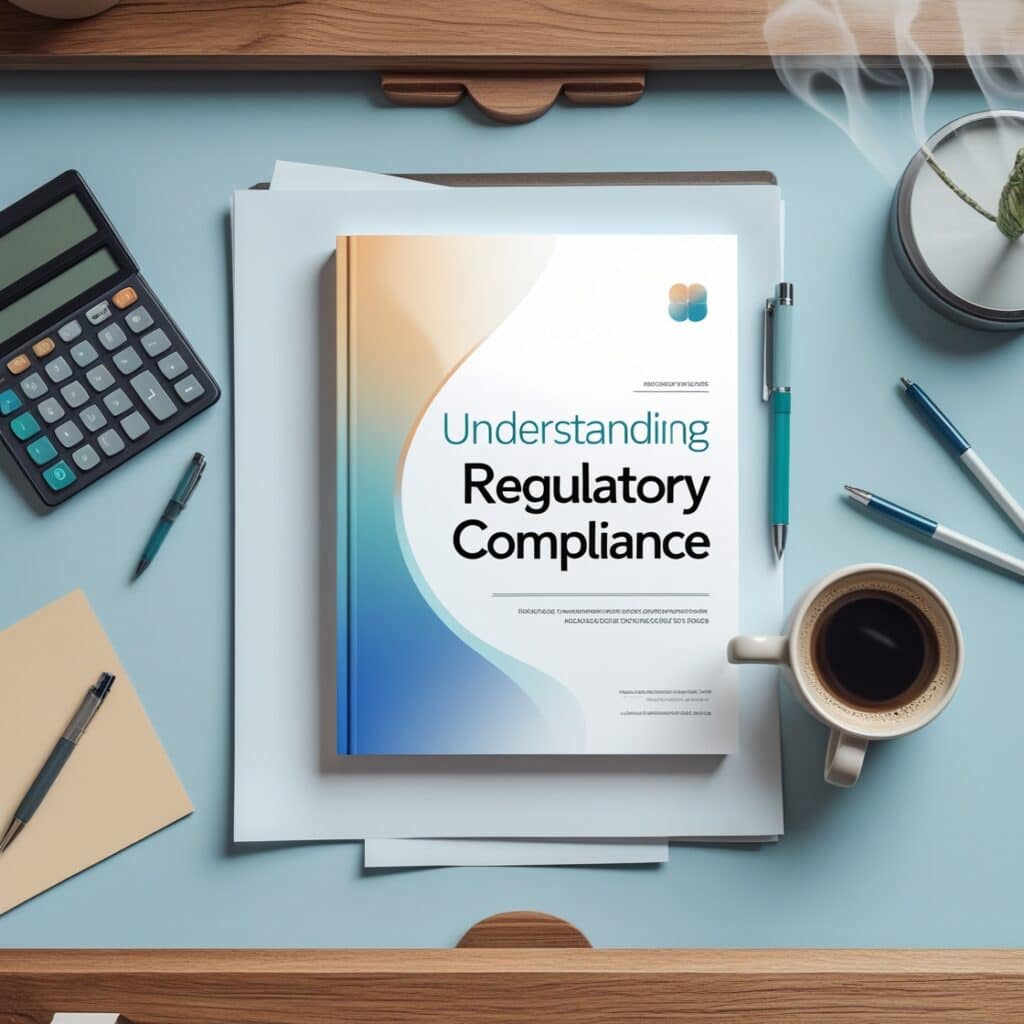At this level, it emerged that about 65% of firms in the United States were having significant challenges in relation to regulatory compliance. This results into heavy losses, as well as untoward negative impact on companies’ images. It is our intention to provide professional services. The aim of our work is to assist companies to deal with the problem of compliance and to fulfill all the obligations.

Most business organizations today operate under certain strict legal requirements that must be implemented. Just as the industries change, so does the legislation related to the removal of unfair practices, risks, and obscurity. Organizations that adhere to implementing these regulations not only cover their ass in avoiding law suits but also gain credibly from institutions and the public. While this blog will discuss issues on regulatory compliance, its importance, instances, accreditation, employment, and realistic strategies in compliance, the input is from Aneel Irshad Khan Advocate.
What is Regulatory Compliance and How It Can Help An Organization?
Compliance is therefore the process of observing and following rules of law, policies, standard, rules and directives of government or quasi governing authorities in executive capacity that binds a business or an industry. For the example, the financial institutions are bound by the banking laws, while the pharmaceutical organizations are held to higher standard of quality to protect the citizens.
Compliance Definition
Compliance means the act of following regulations or procedures from which one is expected to tread. In business, this process includes compliance with the legal regulations and the following guidelines within a certain field.

What is Regulatory Compliance and why is it important?
- Avoid Legal Penalties: Noncompliance can lead to fines or closure of operations to the company and or affected business.
- Enhance Reputation: One benefits of being in compliance is establishing credibility to customers and partners.
- Risk Management: It reduces potential losses that may arise from negligence to hold or meet some regulations or laws.
Major Regulatory Compliance Sectors
The existence of secure tablespaces Generic Financial Compliance & Regulations
The rules that have to be adhered to include FDIC Compliance Management System as well as ISO compliance standards. Such frameworks aim at preventing unethical conduct and safeguarded the interests of consumers.
Compliance of the Pharmaceutical business
It so anchors its pharmaceutical industry tightly under highly regulatory compliance checks to protect the public. For instance, adherence to GMP indicates quality and safety of the products to be manufactured.
Banking regulatory compliance
The rules and regulations that are in place in any country’s banking industry have objectives of combating fraud, improving the readability of customer complaints and the welfare of the customers. Some of the best-known compliance activities are the anti-money laundering (AML) and recognizing and implementing the Basel Accords.
Business & Corporate compliance
Corporate compliance touches on labor laws and regulation, environment laws, data protection laws for instance the General Data Protection Regulation.

Exemplars to Regulatory Compliance
- Financial Institutions: Actions covered by AML laws = = = = = Reporting suspicious transactions.
- Pharmaceutical Companies: Preliminary and clinical research processing with FDA standards.
- Businesses: Compliance with safety requirements and regulation of occupational safety and health authorities (OSHA) tenets.
- Data Protection: Applying information security programs in order to meet GDPR or CCPA requirements.
Using technology for compliance can really help businesses stay ahead. We’ll keep looking into how tech can help with regulatory compliance. We aim to give you the best advice on using these solutions for success.
| Compliance Solution | Key Features | Benefits |
|---|---|---|
| Compliance Management System | Automated tracking, real-time monitoring, customizable workflows | Streamlined compliance processes, reduced manual errors, improved efficiency |
| Risk Management System | Risk assessment, risk mitigation, compliance reporting | Improved risk management, enhanced compliance posture, reduced risk of non-compliance |
Professional Certifications on Regulatory Compliance
Compliances are important to depict the company’s untiring attempt to follow certifications. Examples include:
- Certified Regulatory Compliance Manager (CRCM): It will be crucial to note that compliance professionals in banking need to read this paper.
- ISO Compliance Standards: For example, ISO 27001 for information protection.
- CMC Compliance: For pharmaceutical companies.
Managing compliance across many places needs a proactive and strategic plan. By focusing on legal compliance and keeping up with regulatory guidelines, we can protect our business and keep a strong reputation worldwide.
| Country/Region | Compliance Requirements |
|---|---|
| European Union | GDPR, AML, KYC |
| United States | FCPA, SOX, HIPAA |
By building a culture of compliance, we stay true to ethics and follow laws. This approach helps us avoid penalties and creates a better work environment. As we deal with complex compliance issues, we’re committed to a culture that supports our compliance program.
| Component | Description |
| Leadership Commitment | Demonstrated commitment to compliance management from senior leadership |
| Employee Training | Regular education and training on regulatory laws and compliance management |
| Incentives | Rewards for promoting a culture of compliance and adhering to compliance management strategies |
By tackling these common compliance challenges and finding effective compliance solutions, we can keep our organization in line with laws. This reduces the risk of fines and keeps our reputation strong. Good regulatory compliance builds trust with customers, investors, and others.
| Compliance Challenge | Compliance Solution |
| Resource constraints | Prioritize resource allocation and optimize compliance processes |
| Regulatory complexity | Develop a compliance framework that addresses specific regulatory requirements |
| Employee resistance | Establish a compliance training program to educate employees |
Occupations in Regulatory Compliance
Compliance Analyst
A compliance analyst makes sure everything a company does is legal and conforms to the law and or regulation.
Skills: Such activities require analytical thinking, attention to detail and observance of regulations.
Salary: The average wages of a compliance specialist which sum up the basic income and incentives, are $60 000 to $90 000 per credit or year.
Compliance Manager
A compliance manager supervises the company’s compliance systems. They enforce compliance measures, assess the business, and convey the corresponding guidelines and repercussions to workers.
Average Salary: $95,000 to $120,000 annually.

Remote Compliance Jobs
Currently, as a result of technological innovation,most compliance positions can be worked on from home. Some of the roles are compliance analyst, humane agent, and specialist.
Aneel Irshad Khan Advocate High Court emphasizes the importance of a proactive approach to regulatory compliance:
- Understand Your Obligations: In order to meet legal compliance, ensure that you read more on the current regulations in your industry. It has become a common saying that ignorance of the law is no defense.
- Implement a Compliance Program: The last one is: To develop and document compliance policies. Continuously examine employees so that awareness can be established.
- Conduct Audits: My operations periodically should review to discover and handle some compliance issues.
- Seek Professional Help: Seek third party consulting on unclear legislation jurisdictions.
FAQs on Regulatory Compliance
Regulatory compliance means the task of adhering to laws and regulations which may be in the business or industry you are in.
To comply is to follow relevant legal provision and policies in the operation of business activities.
It comprises the following; compliance to set regulations such as GMP and FDA to guarantee drug safety.
Of course, it entails a bit of knowledge in laws, attention, and proper management of risks.
Technical expertise, professionalism, and marketing skills in processing analytical information and knowledge of regulations.
Adherence to regulations.
In order to run a more ethical company, and to avoid penalties and to continuously safeguard its stakeholders.
Organization structure, standards, procedure and schedule of training, auditing, and refreshing knowledge of new changes in the regulations.
Turning into GDPR requirements in the spheres of data protection.
Conclusion
We know that governmental regulations are the foundation of responsible and long-term business operation today. It shields the organizations from legal consequences, help promote their image and create confidence among its stakeholders. In general, this paper has illustrated how firms requiring compliance in structures with extensive and often intricate rule systems can do so successfully. Aneel Irshad Khan Advocate’s legal advice for Compliance underlines that it is not merely a legal requirement but a business asset. To become a compliance specialist or for any business manager, it is imperative to be receptive to the changes for compliance in the current world.



Can you be more specific about the content of your article? After reading it, I still have some doubts. Hope you can help me.
This is a helpful overview of the importance of regulatory compliance. Thank you for putting it together.
However, I was hoping you could be more specific about the content. After reading, I still have a few doubts, particularly around the practical first steps for a business.
For example, could you elaborate on:
1. Risk Assessment: What does a basic, initial compliance risk assessment actually look like for a small business? Are there key areas we should audit first?
2. Staying Updated: The article mentions that regulations change, but what are 1-2 practical, efficient ways for a time-strapped business owner to stay informed without being overwhelmed?
3. Industry-Specific Rules: The post feels general. Could you provide an example of how a common regulation (like GDPR for data or Health & Safety at Work Act) translates into a specific, actionable task for a business?
Hope you can help clarify these points. Thanks!
I hope this provides much-needed clarity and is immediately useful for you. Please don’t hesitate to reach out if you have more questions. We are here to help demystify this process.
Best regards,
Your point of view caught my eye and was very interesting. Thanks. I have a question for you.
You are welcome! Sure, please ask
Thanks for sharing. I read many of your blog posts, cool, your blog is very good.
Thank you so much for your kind words and for being a reader! It truly means a lot to know you’re enjoying the blog posts. 😊
If there’s ever a topic you’d like to see covered or if you have any thoughts to share, I’m all ears. Always happy to write content that you find interesting and valuable.
Wishing you a great day — and happy reading!